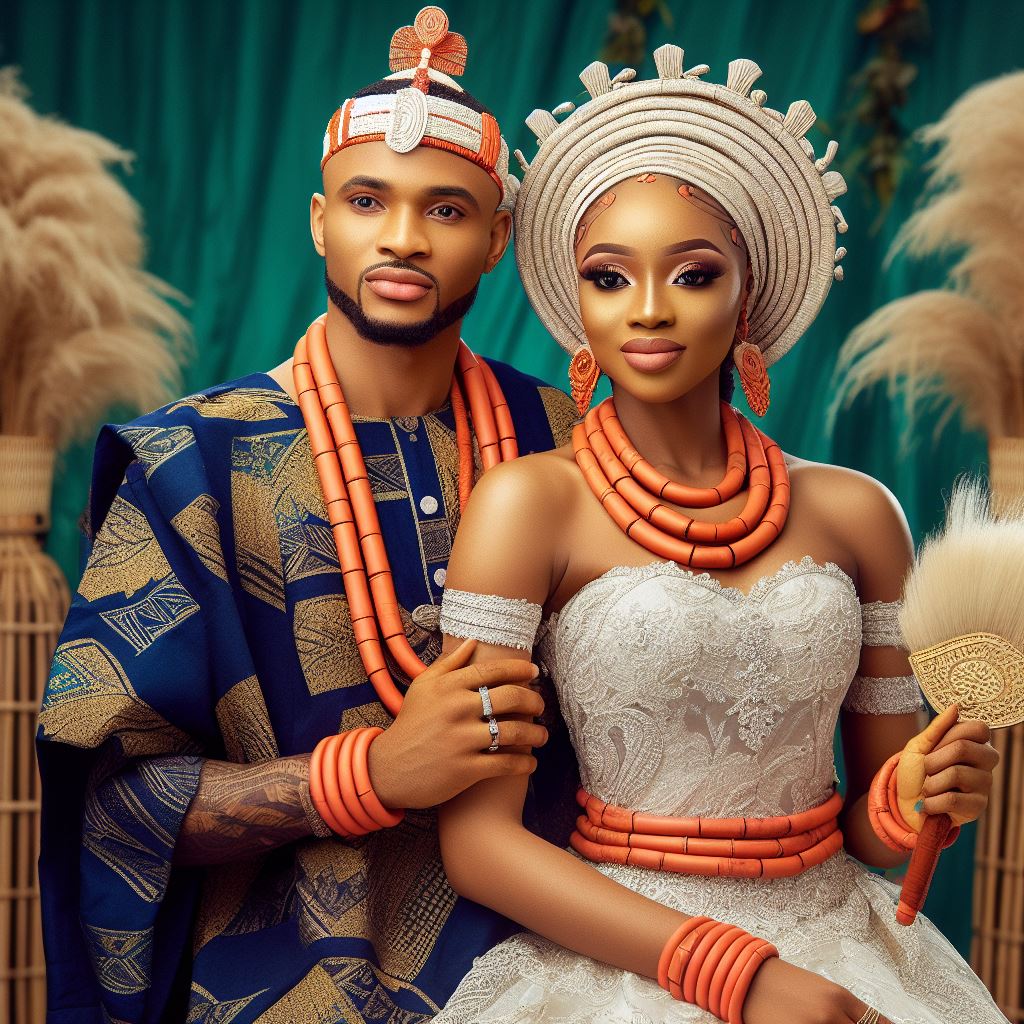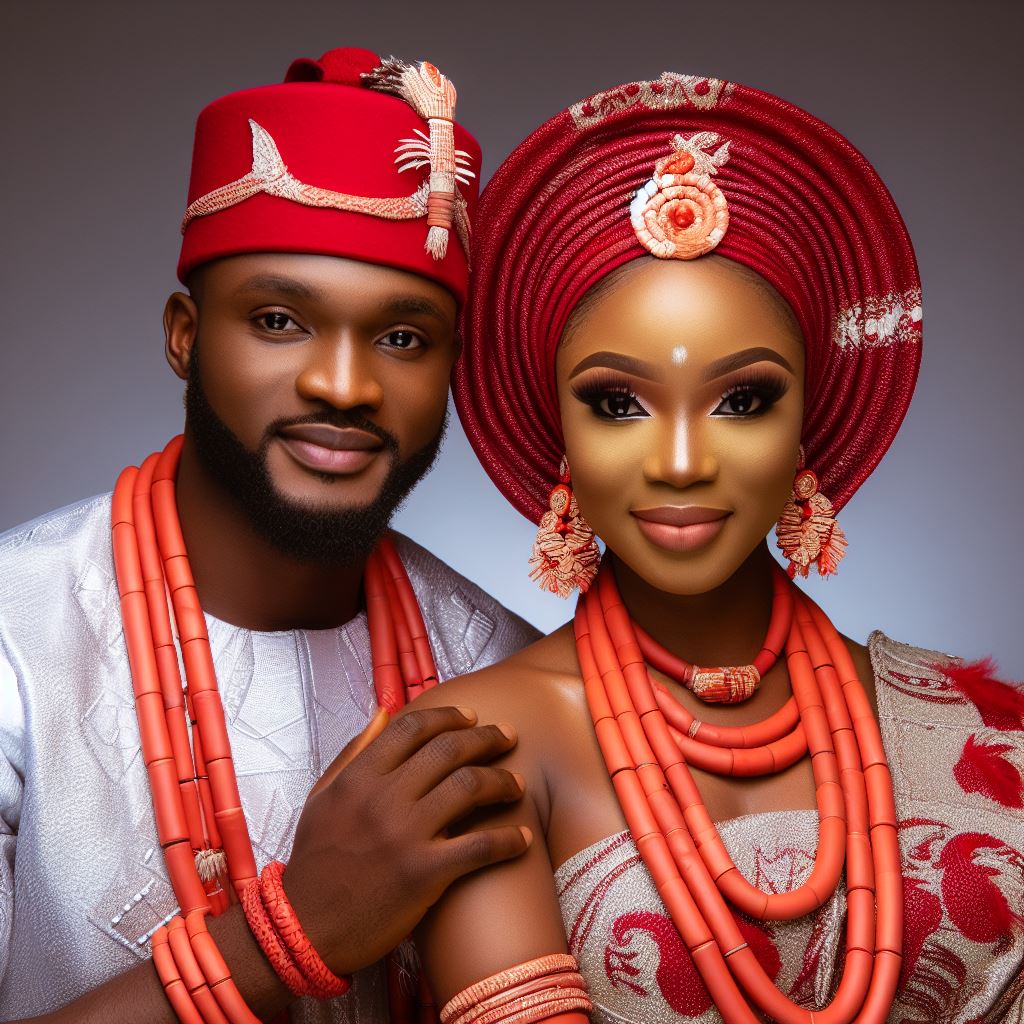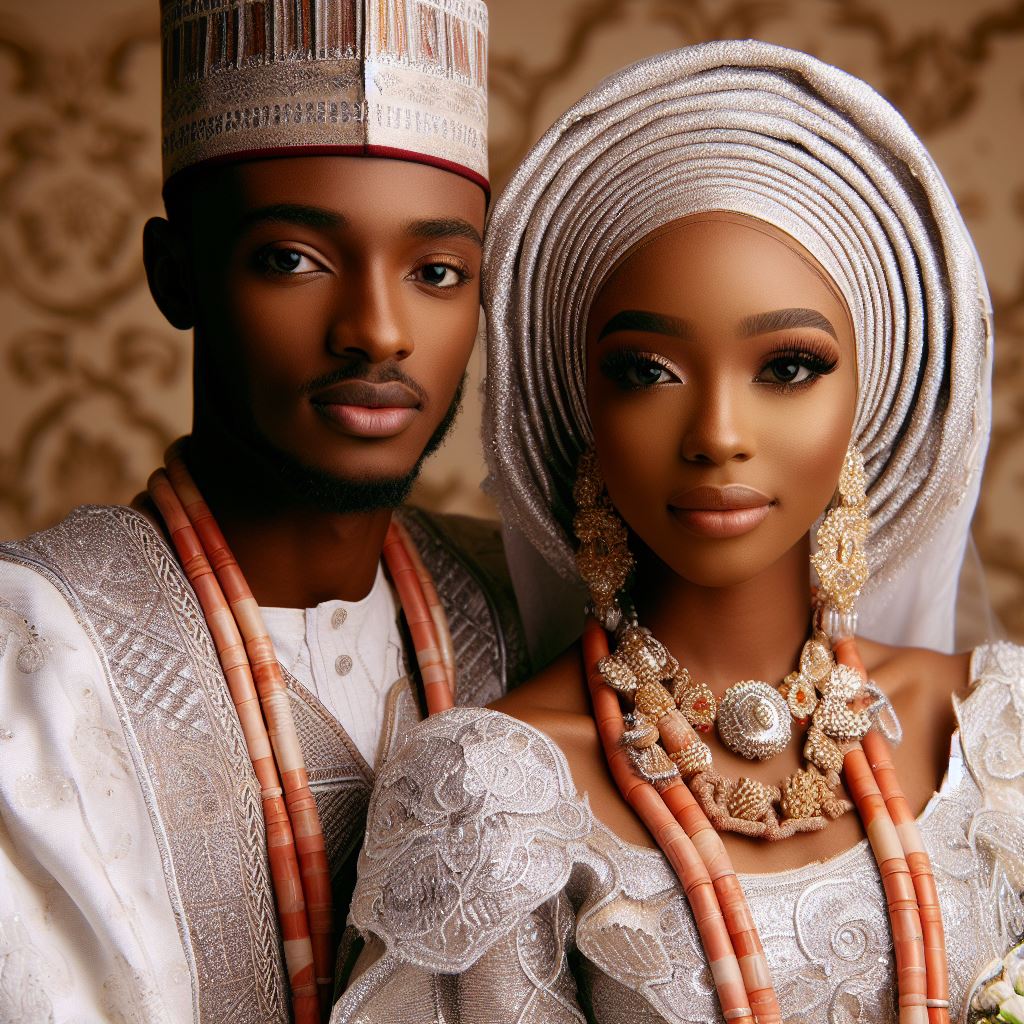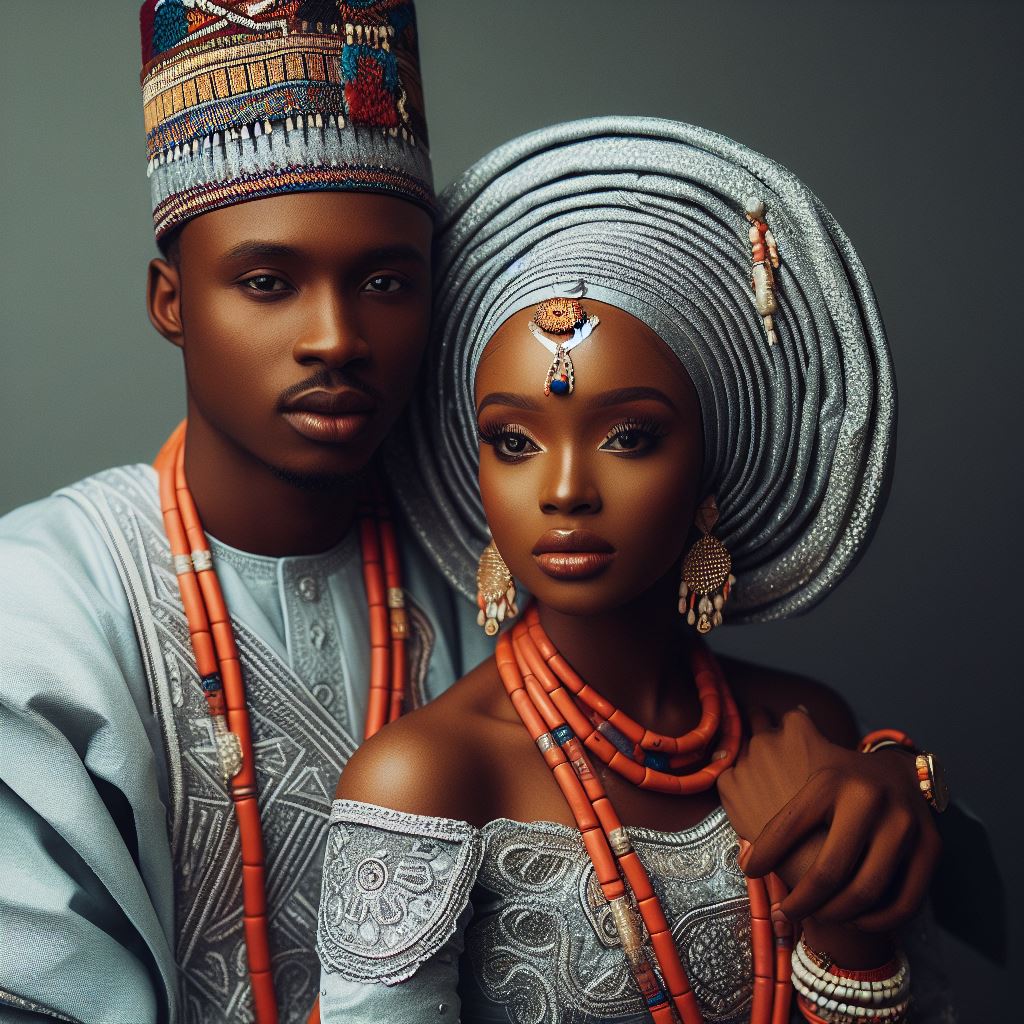Introduction
Let’s explore marriage in Nigeria: Balancing modern views with tradition.
A. Importance and significance of marriage in Nigerian culture
In Nigerian culture, marriage holds immense importance and significance.
B. Brief explanation of the topic: Balancing modern views with tradition in Nigerian marriages
Marriage is seen as a union that not only joins two individuals but also brings families together.
It is a sacred institution that is deeply rooted in tradition, customs, and religious beliefs.
However, in recent times, Nigerian marriages are faced with the challenge of balancing modern views with tradition.
The younger generation is increasingly embracing modern values and ideas about marriage.
They prioritize personal choice, compatibility, and love over traditional considerations like family ties and societal expectations.
On the other hand, older generations still uphold the traditional norms and values of arranged marriages and maintaining family honor.
This clash between modern views and tradition can create tension and conflicts within marriages and families.
Nigeria is a diverse country with multiple ethnic groups, each having its unique set of traditional practices and customs.
Therefore, the ways in which couples navigate this balancing act can vary across different regions and communities.
Some couples opt for a compromise, incorporating both modern and traditional elements in their marriage.
They may have a traditional wedding ceremony followed by a modern court wedding or vice versa.
Others choose to completely embrace modernity, breaking away from tradition and following their own path.
Ultimately, the key lies in open communication, understanding, and respect between partners and their families.
By finding a middle ground, Nigerian couples can create marriages that blend tradition and modernity, ensuring happiness and harmony.
Traditional Nigerian Marriage Customs
Role of parents and extended family in the marriage process
In Nigeria, traditional marriage practices are deeply rooted in the country’s rich cultural heritage.
- Bridal Selection: Traditional Nigerian marriages often involve the parents or extended family playing a significant role in selecting a suitable partner for their child.
- Dowry Ceremony: One of the most essential aspects of traditional Nigerian marriages is the payment of the dowry.
The groom provides gifts or money to the bride’s family as a gesture of respect and appreciation. - Traditional Ceremonies: Pre-wedding ceremonies like the introduction, engagement, and traditional wedding are vital in Nigerian marriages.
These events showcase the rich cultural traditions and customs of the different ethnic groups in Nigeria. - Community Involvement: Nigerian marriages are not just a union between two individuals but also a coming together of two families and communities.
Therefore, the involvement of the extended family and community members is highly valued. - Marriage Proposal: In traditional Nigerian marriages, the groom’s family formally approaches the bride’s family to ask for her hand in marriage. This gesture shows respect and acknowledges the bride’s family authority.
- Ceremonial Attire: Nigerian weddings are known for their exquisite traditional attires. Both the bride and groom dress in traditional outfits that reflect their cultural backgrounds, adding color and vibrancy to the occasion.
- Traditional Rites: Various rites are performed during Nigerian marriages, symbolizing fertility, prosperity, and the unity of the couple.
These rites vary among the different ethnic groups but often include prayers, blessings, and the exchange of symbolic items.
In short, traditional Nigerian marriage customs are deeply ingrained in the fabric of the country’s cultural heritage.
They emphasize the significance of family, community, and cultural values in the marriage process.
By preserving these customs, Nigerians uphold their cultural identity while embracing modern views on marriage.
The Influence of Modernization on Nigerian Marriages
In recent years, Nigerian marriages have witnessed a noticeable shift towards individualism and independence in marital choices.
This shift can be attributed to the influence of modernization on the traditional norms and values associated with marriage in Nigerian society.
One of the significant changes observed in Nigerian marriages is the increased emphasis on love and compatibility in relationships.
In the past, marriages were primarily arranged by families based on factors such as social standing, financial stability, and political alliances.
However, with the advent of modernization, Nigerian couples now place a greater importance on finding a partner they genuinely love and are compatible with.
Western ideals and media have also played a significant role in shaping modern Nigerian marriages.
With the growth of media platforms and the widespread access to Western culture, Nigerians have been exposed to different perspectives on love, marriage, and relationships.
This exposure has led to a reevaluation of traditional practices and a desire for more egalitarian and fulfilling marriages.
A. Shift towards individualism and independence in marital choices
- Marriages in Nigeria are no longer solely influenced by family or societal pressures.
- Individuals have more freedom and agency in choosing their partners based on personal preferences.
- Gone are the days when arranged marriages were the norm.
- Youth in Nigeria are now more inclined towards making autonomous decisions regarding their marital future.
- Education and exposure to different perspectives have empowered Nigerian individuals to assert their independence in making marital choices.
B. Increased emphasis on love and compatibility in relationships
- Love has become a fundamental factor in Nigerian marriages, superseding other traditional factors.
- Couples prioritize emotional connection and affection in their relationships.
- Compatibility, shared values, and mutual understanding are now considered essential for successful marriages.
- Nigerian couples believe that love and compatibility breed happiness and longevity in marriages.
- The pursuit of love and compatibility has become a driving force in Nigerian courtship and marriage.
C. Influence of Western ideals and media on Nigerian marriages
- Western media has brought a new perspective on marriage dynamics to Nigerian society.
- The portrayal of love and romance in movies, TV shows, and music has influenced Nigerian couples.
- Mixed marriages and intercultural relationships have become more accepted and desired.
- Gender roles have been reexamined, leading to a more balanced division of responsibilities within marriages.
- Nigerian couples now seek to build marriages based on trust, equality, and shared aspirations.
In general, modernization has significantly impacted Nigerian marriages, leading to a shift towards individualism, the emphasis on love and compatibility, and the influence of Western ideals.
While tradition still holds a place in Nigerian culture, it is evident that these evolving trends are reshaping the institution of marriage, allowing couples to find happiness and fulfillment in their relationships.
Read: Understanding Nigerian Marriage Traditions and Rites
Challenges in Balancing Modern Views and Tradition
When it comes to marriage in Nigeria, finding a balance between modern views and traditional values can be quite challenging.
There are several factors that contribute to this delicate balancing act:
- Conflicts between individual desires and cultural expectations: Many Nigerians today are exposed to modern ideas and values, which may not always align with traditional norms.
This can lead to conflicts between what individuals desire for their own lives and what is expected of them by their families and communities. - Pressure to conform to societal and family expectations: Nigerian society places a strong emphasis on marriage and family, often viewing it as a person’s primary duty.
As a result, individuals may feel pressure to conform to societal and family expectations, which can sometimes conflict with their own desires and beliefs. - Struggles in merging different cultural backgrounds in interethnic marriages: Nigeria is a diverse country with over 250 ethnic groups, each with its own unique traditions and customs.
When individuals from different ethnic backgrounds come together in marriage, there can be significant challenges in merging and balancing these diverse cultural backgrounds.
A. Conflicts between individual desires and cultural expectations
These challenges can manifest in various ways and can impact different aspects of a marriage.
For instance, conflicts between individual desires and cultural expectations can lead to disagreements on issues such as the choice of spouse, career aspirations, and even the decision to have children.
B. Pressure to conform to societal and family expectations
Furthermore, the pressure to conform to societal and family expectations can result in individuals feeling trapped in unhappy marriages or being forced into marriages they do not desire.
This can have negative consequences for both individuals and the overall well-being of the marriage.
C. Struggles in merging different cultural backgrounds in interethnic marriages
In interethnic marriages, the struggles in merging different cultural backgrounds can lead to conflicts over traditions, customs, and even language barriers.
Finding a middle ground that respects and honors both partners’ cultural backgrounds while building a shared future can be a constant challenge.
However, despite these challenges, it is important to note that many Nigerians are successfully navigating the complexities of balancing modern views and tradition in their marriages.
This often requires open communication, mutual respect, and a willingness to compromise.
It is also essential for couples to seek support from family, friends, and even professional counselors who can provide guidance and help navigate the challenges that arise.
Through teamwork and understanding, couples can create a marriage that embraces both modern views and traditional values.
In review, balancing modern views and tradition in Nigerian marriages is not without its challenges.
Conflicts between individual desires and cultural expectations, pressure to conform, and merging different cultural backgrounds can all present difficulties.
However, with open communication, mutual respect, and support, couples can find harmony and create a fulfilling and thriving marriage.
Read: The Cultural Significance of Marriage in Nigeria: A Deep Dive
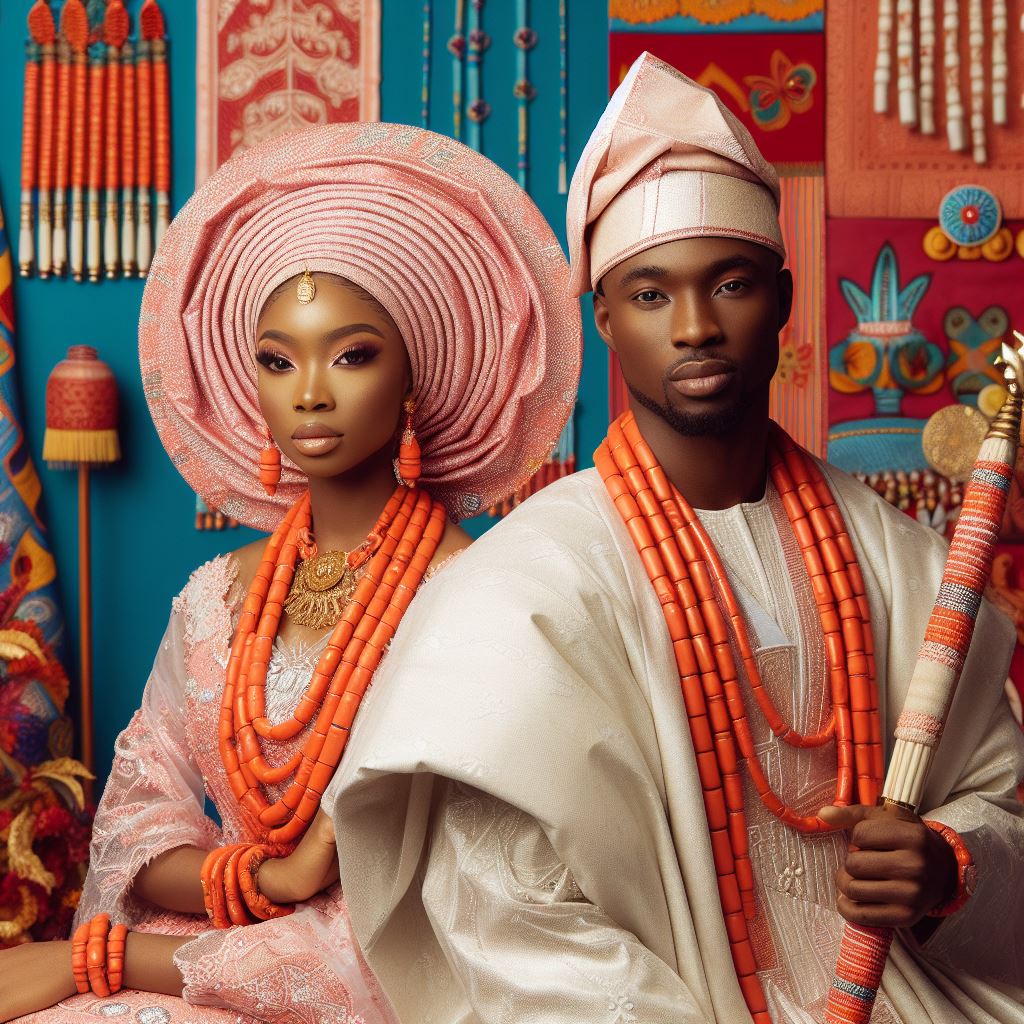
Gain More Insights: Combining Tradition & Love: Anniversary Wishes in Pidgin
Finding Balance in Nigerian Marriages
Marriage in Nigeria is a delicate dance between traditional values and modern viewpoints.
Couples often find themselves striving to strike a balance that satisfies both their cultural roots and their evolving desires.
This process requires open communication, compromise, and a recognition of the cultural and social significance of marriage.
A. Importance of Open Communication and Compromise
Mutual understanding and effective communication form the foundation of a successful Nigerian marriage.
Partners should openly discuss their expectations, desires, and concerns, ensuring that their voices are heard.
Through active listening and compromising, conflicts can be resolved, and trust can be nurtured.
By engaging in honest and transparent conversations, couples can address any cultural or societal pressures that may arise.
This allows them to establish their own unique marriage dynamics while still honoring their heritage.
B. Recognizing the Value of Tradition and Embracing Modern Views
Traditional values hold immense importance in Nigerian culture.
Marriage rituals, customs, and familial ties are deeply rooted and celebrated.
However, it is crucial for couples to embrace modern views and understand that individuals evolve over time.
This balance can be found by appreciating the cultural significance of tradition while integrating progressive perspectives.
Being open-minded, tolerant, and respectful of each other’s opinions allows couples to navigate the complexities of marriage with grace.
C. Seeking Support from Community and Traditional Practices
In Nigeria, communities play a vital role in supporting and sustaining marriages.
Couples often seek advice and guidance from elders, family members, and religious leaders.
By doing so, they tap into the wisdom and experiences of their community, strengthening their relationship.
Traditional practices, such as pre-marital counseling and marriage ceremonies, provide a sense of identity and cultural belonging.
These practices not only bring families together but also serve as a constant reminder of the rich traditions that shape Nigerian marriages.
Moreover, community support and involvement help couples navigate challenges, providing them with a network of support and shared wisdom.
D. Maintaining Cultural Identity
As couples strive to strike a balance between tradition and modernity, it is vital to maintain their cultural identity.
This means honoring customs, engaging in cultural activities, and passing on traditions to future generations.
Language, cuisine, clothing, and celebrations all play a role in maintaining cultural identity within Nigerian marriages.
By integrating these elements into their daily lives and special occasions, couples ensure that their cultural heritage remains alive and vibrant.
In the intricate dance of Nigerian marriages, finding balance between traditional values and modern views is essential.
Open communication, compromise, and a recognition of the cultural significance of marriage serve as guiding principles for couples.
By seeking support from their community and embracing their cultural identity, couples can create harmonious and fulfilling marriages that honor their heritage while embracing progress and growth.
Read: Celebrating Anniversaries: Thanking God for Years Together
Examples of Successful Balancing of Modern Views and Tradition
A, Stories and anecdotes of Nigerian couples successfully navigating the challenges
One inspiring story is that of Chinedu and Ifeoma, who met through an online dating platform.
Despite facing initial skepticism from their families about the unconventional way they met, they were able to bridge the gap between traditional expectations and modern techniques.
Chinedu and Ifeoma showcased how effective communication and mutual respect can overcome cultural differences.
Another anecdote revolves around Kunle and Funmilayo, who belong to different tribes with distinct customs and traditions.
By actively engaging in open dialogue and compromise, they managed to incorporate elements from both cultures into their wedding ceremony.
B. The importance of adapting customs to fit modern realities
Nigerian couples are increasingly recognizing the importance of adapting customs to contemporary circumstances.
For instance, many are choosing to have smaller, more intimate weddings instead of elaborate and costly ceremonies.
By scaling down the festivities, couples can focus on building a solid foundation for their marriage instead of getting caught up in societal pressures.
Moreover, some couples are reevaluating traditional gender roles and expectations within marriage.
They are embracing more egalitarian dynamics, allowing both partners to pursue their individual aspirations while maintaining a strong partnership.
This shift in mindset demonstrates how Nigerian couples are balancing tradition and modernity for a harmonious marriage.
C. Celebrating the strength and resilience of Nigerian marriages
Nigerian marriages have historically shown remarkable strength and resilience in the face of challenges.
They have endured through shifting societal norms, political instability, and economic uncertainties.
These marriages are strengthened by cultural values such as respect, commitment, and communal support.
Furthermore, Nigerian couples have proven their adaptability by incorporating modern approaches while preserving essential traditions.
Through their ability to evolve and find a balance between tradition and modernity, Nigerian marriages serve as an inspiration to many.
As Nigeria continues to experience rapid social and economic changes, its citizens are finding innovative ways to preserve their cultural heritage while embracing modern perspectives.
Nigerian couples have become trailblazers, demonstrating that it is possible to strike a balance between tradition and modernity in marriage.
By sharing stories of successful navigation, highlighting the importance of adaptation, and celebrating the strength of Nigerian marriages, society can learn valuable lessons on maintaining cultural roots while embracing progress.
Read: Building a Marriage that Lasts: Lessons from the Bible
See Related Content: Bridging Tradition: Nigerian vs. Western Wedding Wishes
Conclusion
Marriage holds great significance in Nigeria, serving as an important institution for individuals and society as a whole.
It is a symbol of love, commitment, and the desire to build a family.
However, to ensure successful marriages in Nigeria, there is a need to balance modern views with tradition.
The rapid changes in society have brought about new expectations and challenges, but it is important to hold onto the values and customs that have long been cherished.
Nigerians should appreciate and understand the diversity of marriages that exist within the country.
Different tribes and ethnic groups have their unique traditions and customs related to marriage.
Embracing this diversity can foster cultural unity and strengthen the institution of marriage.
Moreover, it is crucial for individuals to appreciate and respect each other’s beliefs and perspectives.
Open communication, mutual understanding, and compromise are key elements to maintaining harmonious relationships.
By embracing both modern and traditional values, couples can navigate the complexities of marriage and create a strong foundation for a lifetime together.
In the end, the success of marriages in Nigeria lies in striking a balance between modernity and tradition.
By combining the values and practices of both, couples can create fulfilling, enduring relationships that enrich their lives and contribute positively to Nigerian society as a whole.

